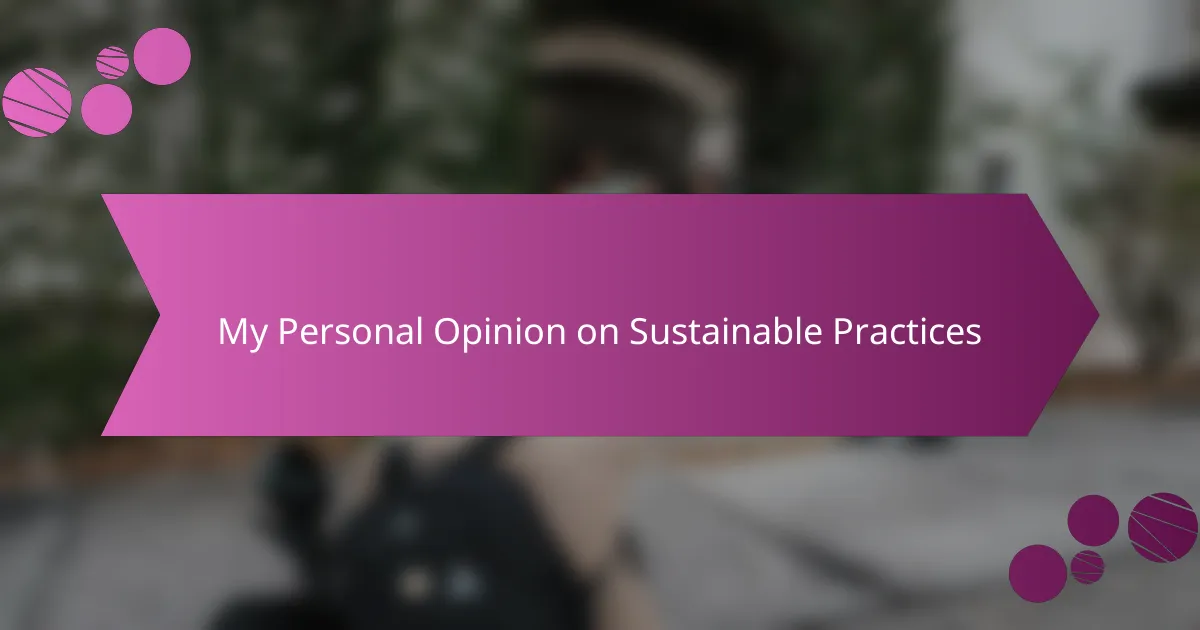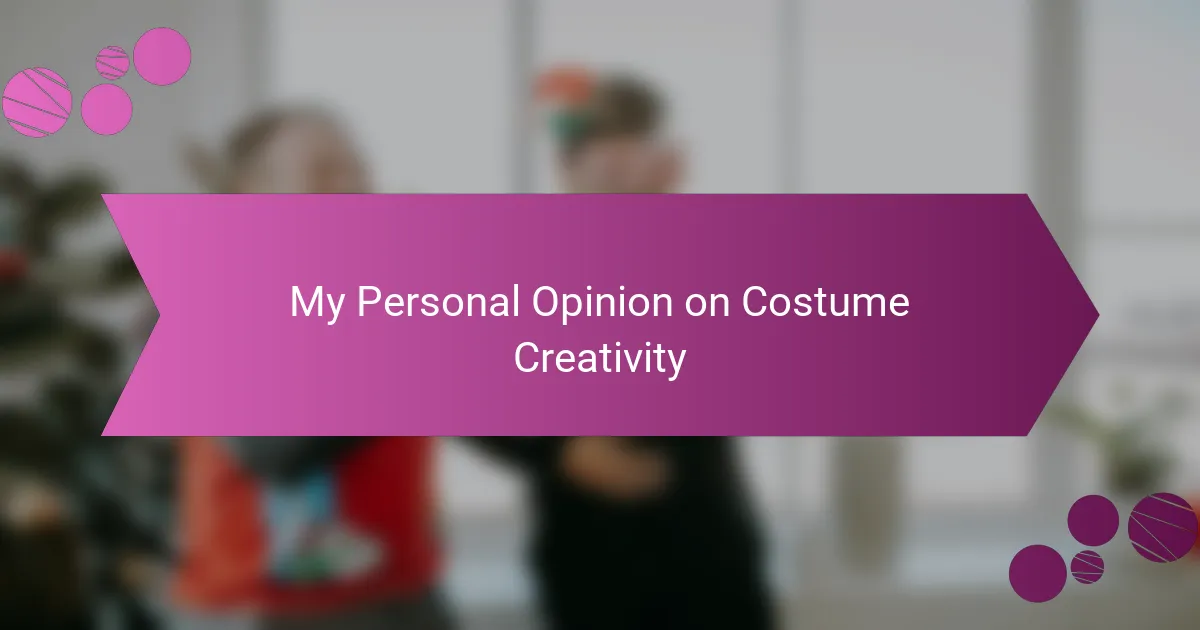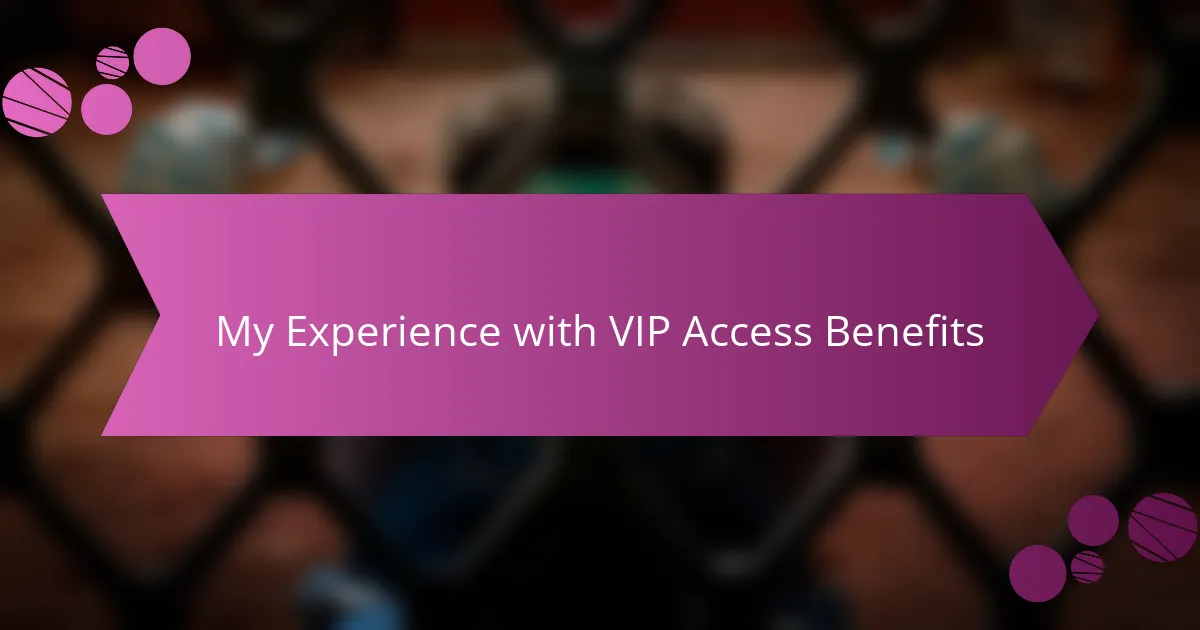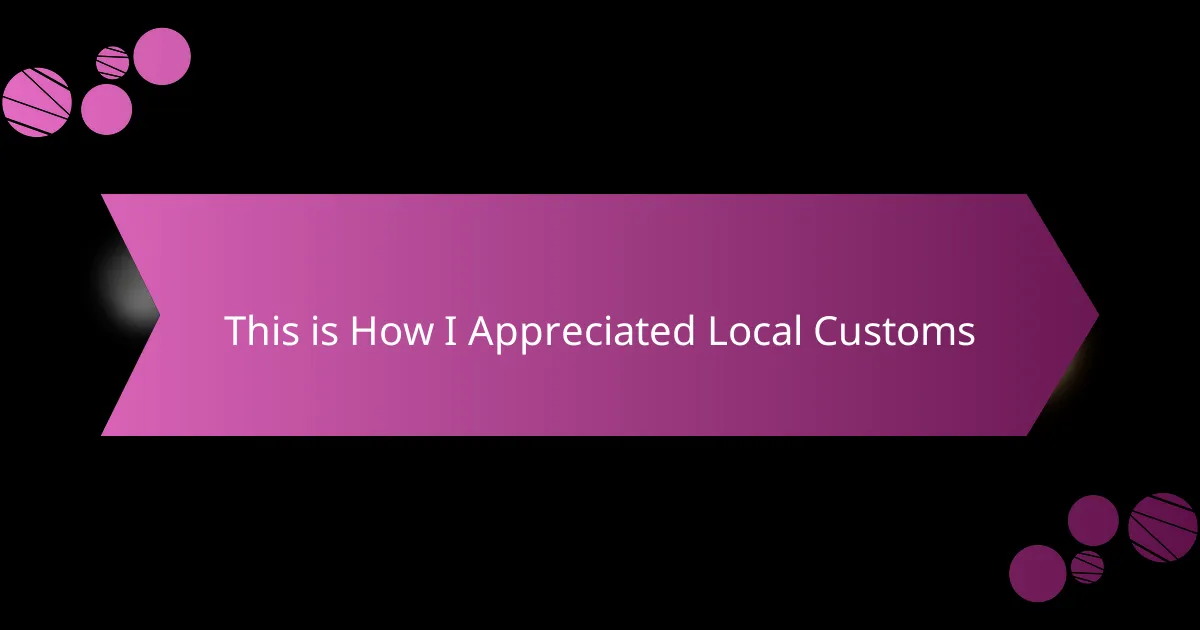Key takeaways
- Sustainable practices in events enhance community connection and reduce ecological footprints.
- Incorporating local food vendors and waste segregation promotes environmental responsibility at festivals.
- Engaging workshops and digital solutions can effectively raise awareness and minimize waste.
- Community involvement and innovative technologies are crucial for the future of sustainability in festivals.
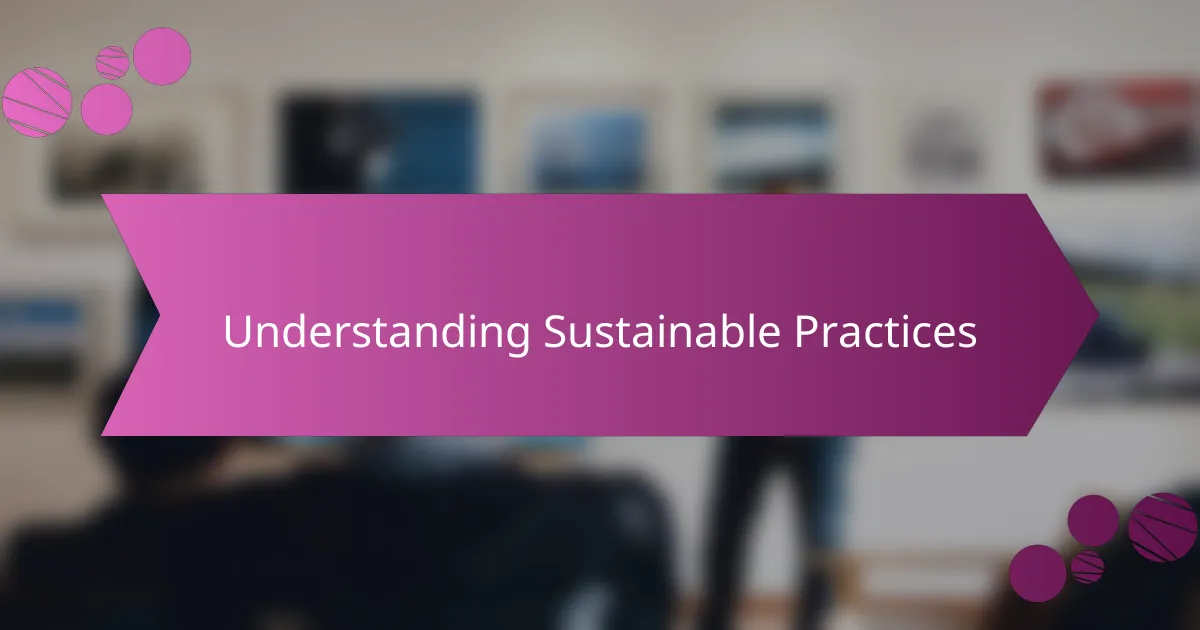
Understanding Sustainable Practices
Sustainable practices focus on meeting our present needs without compromising the ability of future generations to meet theirs. I remember a moment at a local festival where organizers made a conscious effort to use biodegradable materials. Watching festival-goers embrace this initiative made me realize how small changes can lead to significant impacts.
When I consider sustainable practices, I often think about the balance we need to find in our consumption habits. Have you ever thought about how much waste we generate during events? I’ve seen firsthand how simple actions, like reducing single-use plastics and encouraging recycling, can transform our environment.
Understanding sustainable practices goes beyond just reducing waste; it’s about fostering a mindset of respect for our resources. I’ve come to appreciate how every little step—like using public transport to attend a concert or supporting local vendors—contributes to a larger movement. Doesn’t it feel good to be part of something greater, knowing we’re making choices that protect our planet?
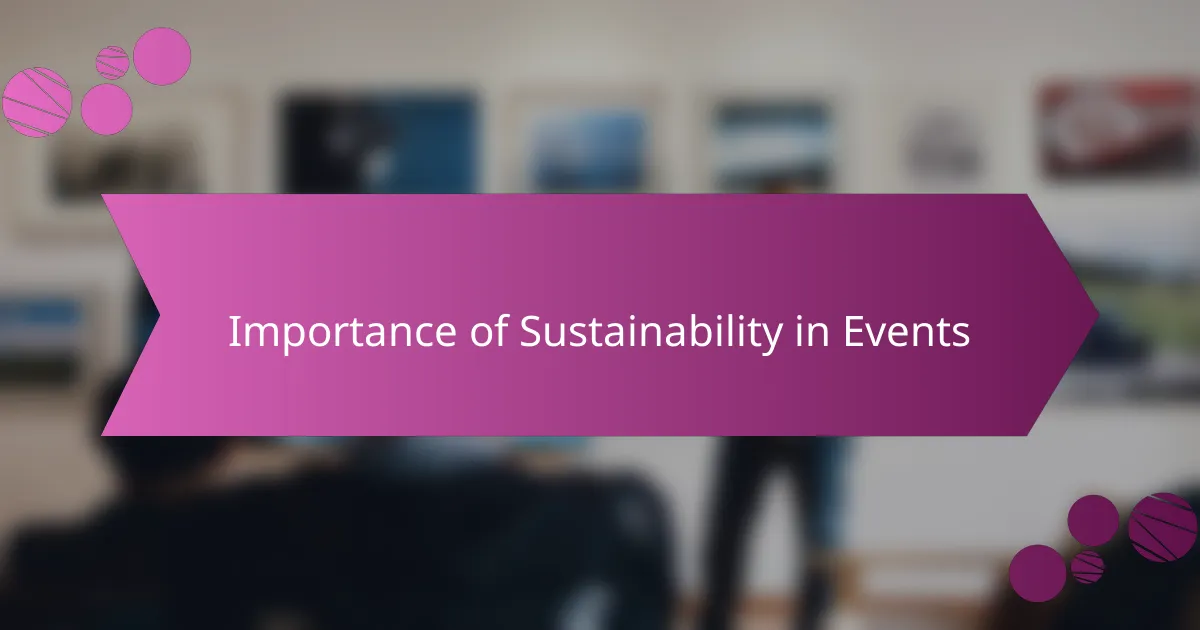
Importance of Sustainability in Events
Incorporating sustainable practices in events is crucial for several reasons. When I attended a recent music festival that prioritized environmental responsibility, I felt a deep sense of connection to the cause. It made me reflect: why shouldn’t every event strive to minimize its ecological footprint? This shared commitment creates a community ethos that resonates deeply with attendees.
Moreover, sustainability in events is more than a trend; it’s a fundamental requirement for future gatherings. I remember seeing beautifully crafted signage encouraging carpooling, which not only reduced emissions but also sparked conversations among strangers. Isn’t it fascinating how small changes can inspire connections and promote camaraderie?
Lastly, the financial benefits of sustainability should not be overlooked. I witnessed one festival save significant costs by reducing waste and utilizing renewable resources. This experience made me realize that sustainable practices can lead to a win-win situation—less waste and lower expenses. Doesn’t that inspire you to think about how we can all contribute to more responsible event planning?

Overview of Thai Music Festivals
Thai music festivals are vibrant celebrations of culture, art, and community. These events often showcase traditional Thai music alongside contemporary genres, providing a platform for both emerging and established artists. I recall attending the Loy Krathong festival, where the uplifting melodies and the warm spirit of the crowd created an unforgettable experience that truly highlighted the beauty of Thai culture.
One key aspect that stands out in these festivals is their ability to bring people together, fostering a sense of unity and joy. As I listened to different musical performances, I noticed how the rhythm can evoke emotions that connect us, making every festival a unique experience.
Here’s a comparison table highlighting some notable Thai music festivals and their features:
| Festival Name | Location |
|---|---|
| Songkran Festival | Bangkok |
| Loy Krathong Festival | Ayutthaya |
| Chiang Mai Flower Festival | Chiang Mai |
| Thai International Music Festival | Bangkok |
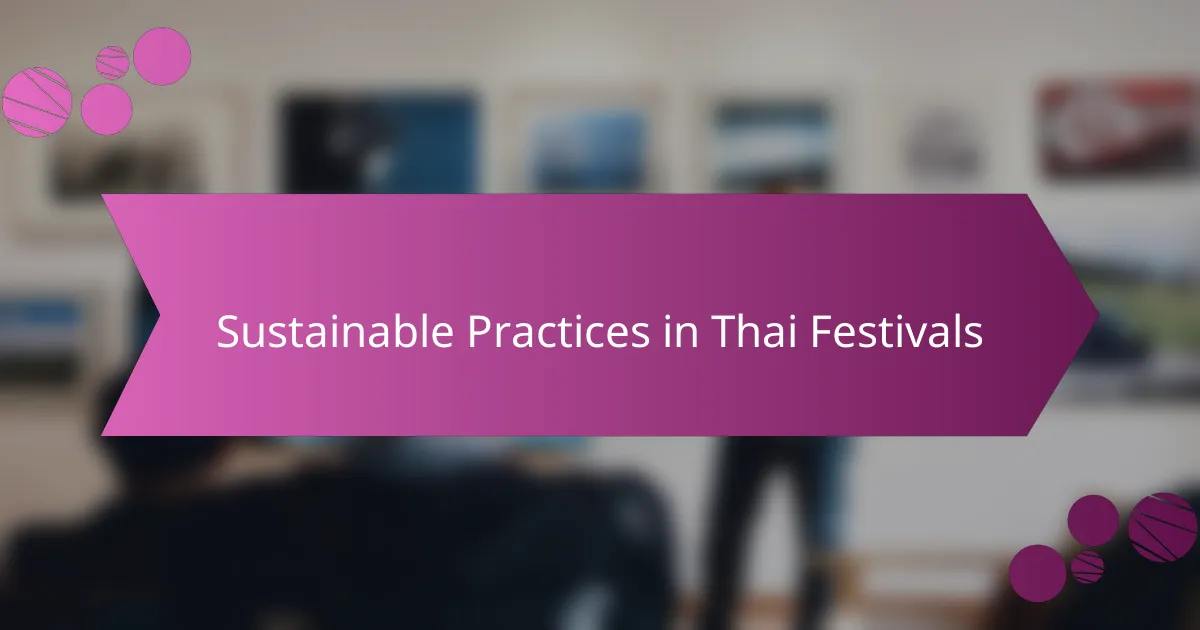
Sustainable Practices in Thai Festivals
Attending a Thai music festival is not just an opportunity to celebrate culture; it’s also a chance to embrace sustainable practices that resonate deeply with the local communities. I vividly remember my experience at the Chiang Mai Songkran Festival, where organizers encouraged the use of biodegradable materials. It really struck me how these small changes, like replacing plastic cups with bamboo options, fostered a sense of shared responsibility among attendees.
In my opinion, incorporating sustainability into Thai festivals can be transformative. Here are a few practices I think can enhance this effort:
- Use of Local and Organic Food Vendors: Supporting local farmers not only provides fresh ingredients but also reduces the carbon footprint associated with food transportation.
- Waste Segregation Stations: Setting up clear recycling and compost bins encourages festival-goers to dispose of waste responsibly.
- Eco-friendly Decor: Using natural materials like flowers and leaves instead of synthetic decorations helps maintain the beauty of the environment.
- Public Transport Incentives: Collaborating with local transportation services to offer discounts can reduce traffic and emissions during the festival.
Experiencing these practices firsthand made me appreciate the harmony between celebration and sustainability. It’s a small step that can lead to lasting change.
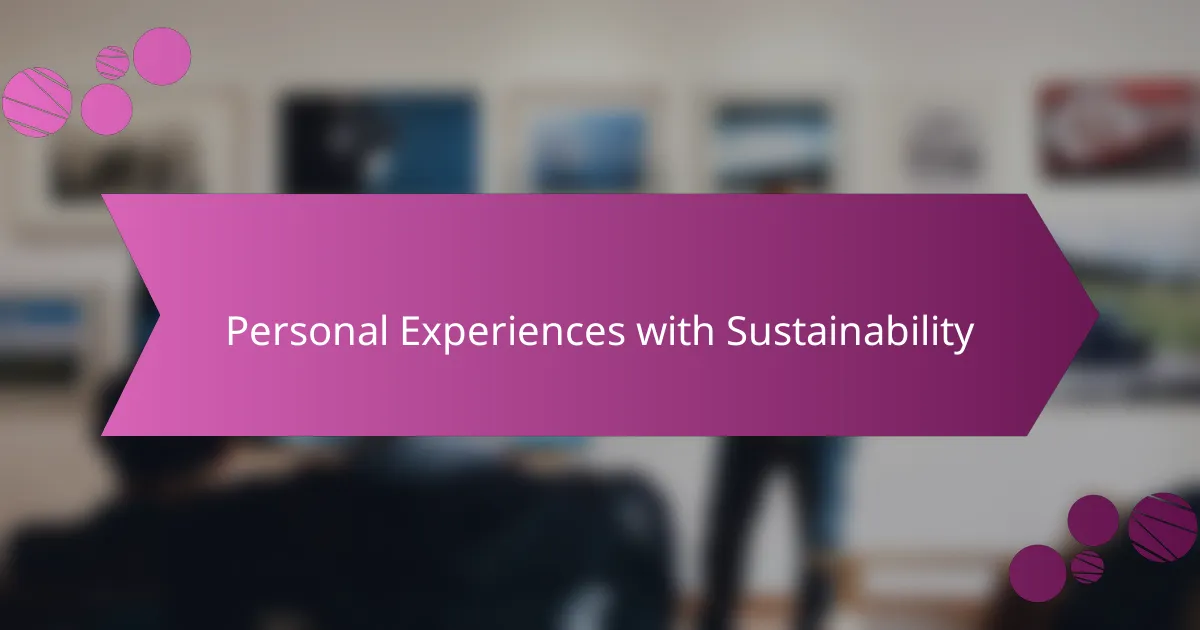
Personal Experiences with Sustainability
At last year’s Thai music festival, I was moved by the visible efforts towards sustainability. From biodegradable cups to recycling stations, it felt rewarding to be part of a community that prioritizes the environment. I remember chatting with a vendor who proudly shared that their food packaging was 100% compostable, which made me feel that my choices were making a difference.
Reflecting on these experiences, here are some sustainable practices that significantly impacted my festival journey:
- Use of solar panels for powering stages and booths.
- Banning single-use plastics throughout the venue.
- Encouraging carpooling and providing incentives for those who used public transport.
- Offering eco-friendly merchandise, such as reusable water bottles.
- Setting up educational booths about local flora and fauna conservation initiatives.
These initiatives not only enhanced my experience but also deepened my appreciation for the vibrant culture I love to celebrate.
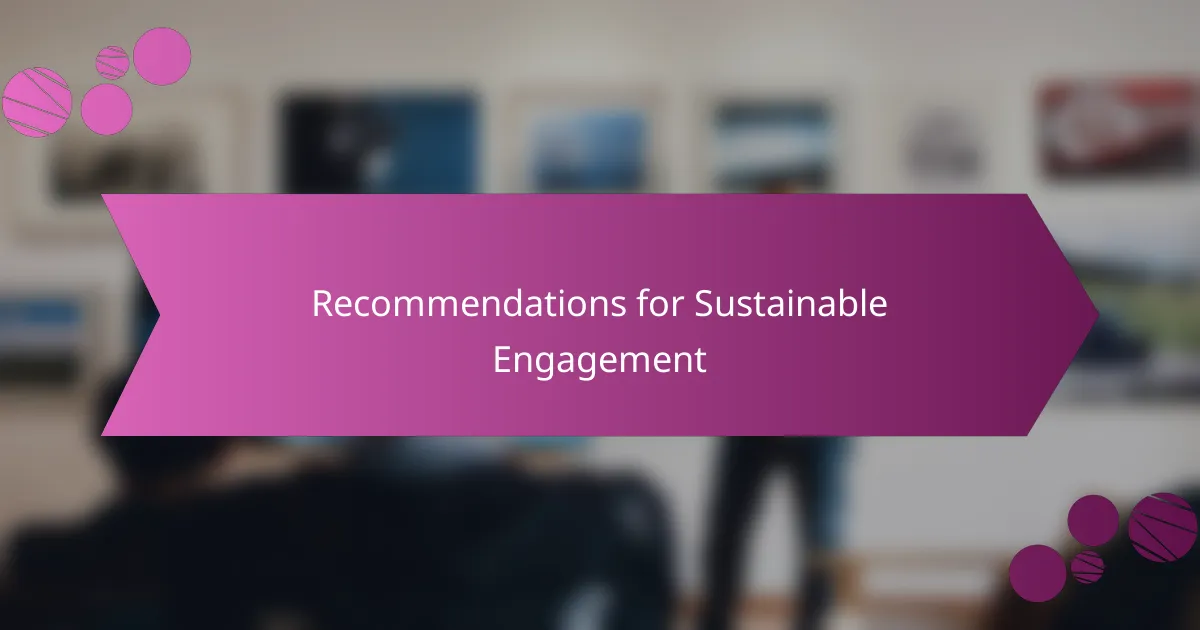
Recommendations for Sustainable Engagement
Sustainable engagement at festivals can be achieved through meaningful collaboration with local communities. I remember attending an event where artists were not only performers but also advocates for environmental change. They used their platforms to educate audiences about sustainability, and I found myself inspired to take action just by hearing their passion. Isn’t it amazing how music can unify and elevate important conversations?
Another way to promote sustainability is by creating engaging, interactive workshops. At one festival, I participated in a DIY session on upcycling old clothing into fashionable accessories. Not only did it provide an enjoyable hands-on experience, but it also sparked friendships and raised awareness about waste reduction. Could these kinds of activities become the norm at all festivals?
Finally, integrating digital solutions for ticketing and marketing can significantly reduce paper waste. When one festival I attended switched to mobile apps for schedules and maps, I felt relieved knowing we were cutting down on printed materials. It was a seamless experience that showed how technology can enhance our celebration of culture while being environmentally responsible. Have you considered how these kinds of innovations could shape the future of festivals?
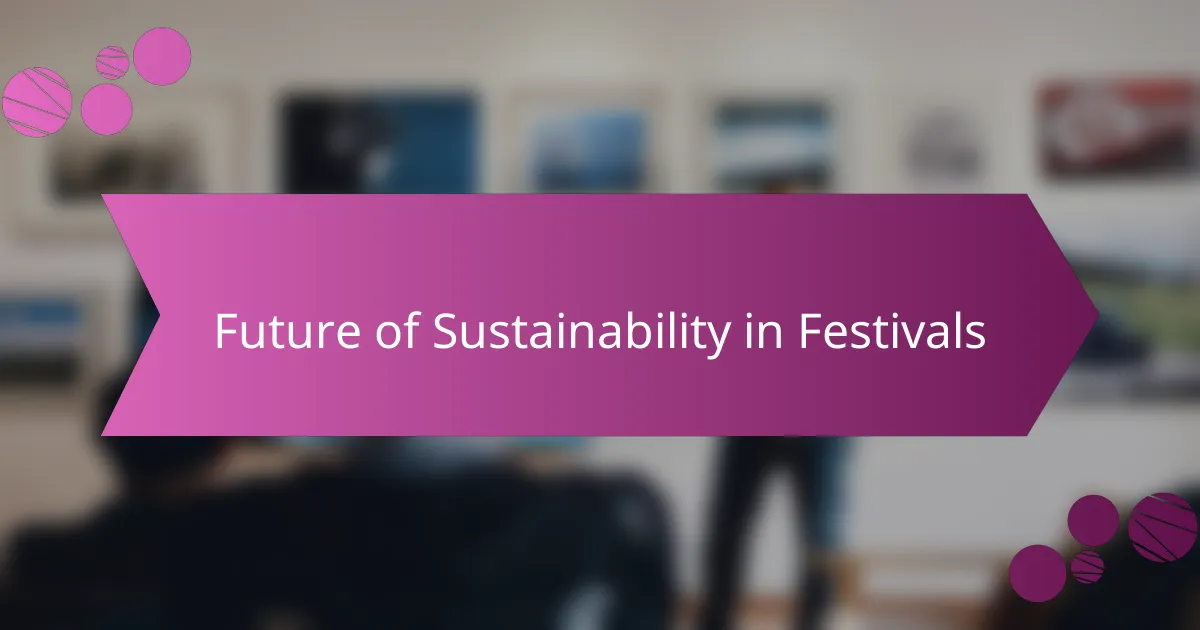
Future of Sustainability in Festivals
The future of sustainability in festivals is looking promising, and I have high hopes for the direction it’s heading. When I attended a festival that incorporated solar-powered stages, I was taken aback by the energy atmospheric setup created. It made me ponder: if we can power an entire music festival with the sun, what other innovations are on the horizon?
As I reflect on my festival experiences, I often wonder about the role of technology in promoting sustainability. For instance, I once saw a festival utilize a smart waste management system that tracked recycling rates through a mobile app. This real-time data not only educated attendees but also encouraged friendly competition to improve sustainability practices. Doesn’t it feel good to be part of something that harnesses the power of innovation?
Additionally, engaging the local community is essential for the future of festivals. I remember a festival that allowed local artisans to showcase sustainable products. Their passion for environmental stewardship was contagious! Communities rallying around sustainability not only enhance the festival experience but also prioritize the shared responsibility we all have towards the planet. Isn’t it inspiring to think of the lasting impact we can create together?
